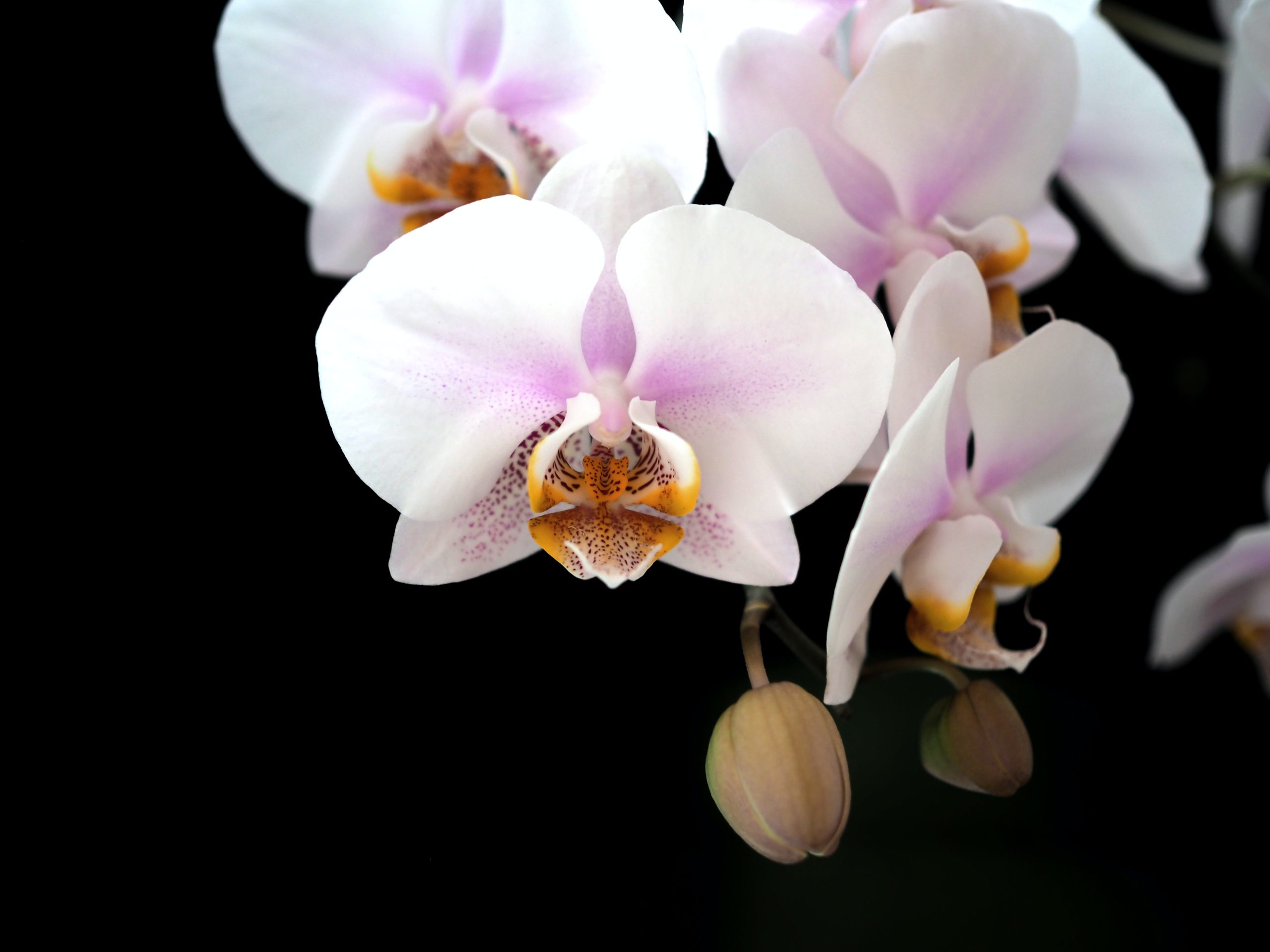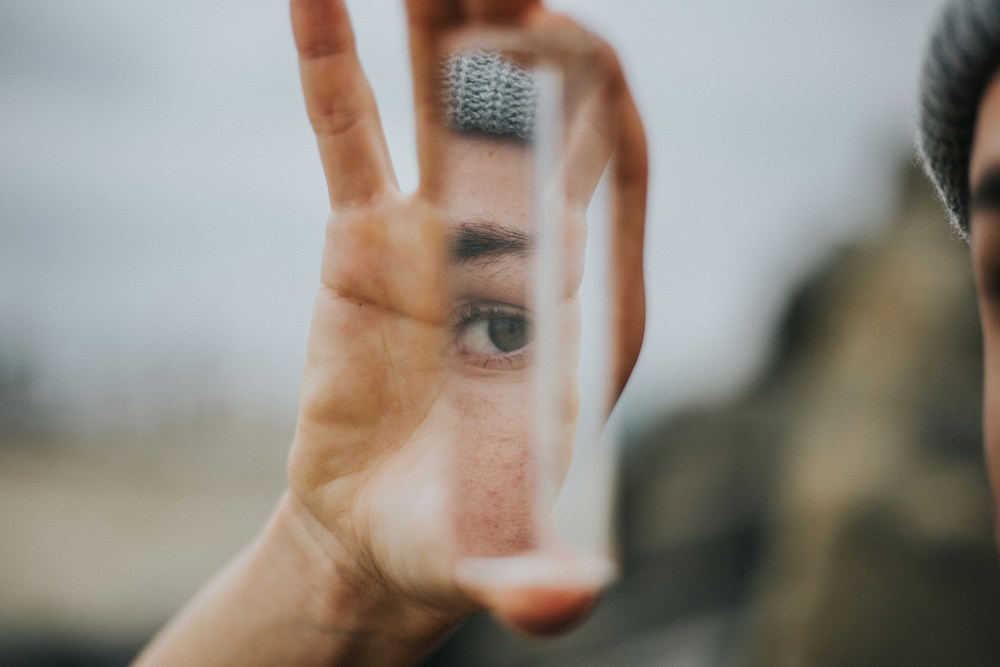Craft
Twisting My Life Into a Story Sacrificed My Ability to Live It
Walking away from the perfect ending gives me the freedom to write something real

Our street is the kind resplendent with trees that escort your car along its morning commute, their eager branches bending over the road. Old Victorian mansions are chopped into infinitesimal apartments very much like our own—a big red brick thing that was once a nursing home, though the only suggestions of its past are showers that slip right into the floor and the eerie shrouded feeling that comes with walking its halls. My favorite part of the neighborhood, however, is the science museum that sits down the street.
Brutalistically gray and unassuming, the science museum watches over its surrounding homes and greets my partner and I on our daily walks. This is why I notice immediately when the sign shows up, overnight. Small and vague, planted right by the entrance. All I can make out are the words “Orchid Show.” There are no dates listed, so I’m not sure if it happened already, if it’s happening now, or if it’s happening in the near future. But it has an attractive air of mystery that pulls at me—freshly out of graduate school and trying to figure this life thing out, trying to find something to care about. I’m desperate for, as cliche and literal it is, a sign. For the universe to come around and smack me in the face with something important, worthy. And this cipher, flimsy on a white board and metal legs, has a luring specificity.
Upon returning to our apartment, my partner, Jonny, looks up the information. “Orchid Show, Rochester” is the only search term we can think of to return the result we want. What comes up are various orchid societies, one from the Genesee Region of New York and one encompassing the entire country: the American Orchid Society. It turns out this year marks the latter’s 47th annual show, complete with lecture talks, orchid sales, and living art pieces created and cared for by members of the local chapter. In essence, it’s a carnival for the flower’s most dedicated followers.
The show’s last day is Sunday, and Jonny goes with me under the pretense that we’ll only stay if it’s free. Who are we—two broke, recent graduates—to spend any amount of money on something so silly? We pull open the heavy glass doors.
“Okay, we’ll just look around,” I tell him. Internally, I’m cursing myself for not knowing about this event earlier, thinking I could have pitched coverage of it to my local newspaper. Already, in my head, I know I can’t turn away. Already, I’m experiencing each moment through the lens of how it would work in a story.
There are more people smushed into the tiny welcome room than I expected. And on the far side, there’s a row of meticulously styled orchid arrangements, all assembled by members of the local society. One is built of a hollow rod of bamboo with an oval cut out in the middle through which water and pussy willows build up and over the smooth edge. Another is impossibly delicate, the mere whisper of an orchid cradled in the black circular vase’s arch. “That one looks like your purse,” Jonny tells me. If the entrance fee means more of this, I’m inclined to pay it.
In 1998, Susan Orlean published The Orchid Thief, her tour-de-force journalistic memoir (though I don’t think she’d ever refer to it as such) following the orchid obsession that was tearing through Florida, leading more than one individual to the brink of criminality. Orlean centers the story on John Laroche, a man possessed by an indescribable desire to capture and appropriate the ghost orchid, Polyrrhiza lindenii. He is driven by greed, but also a lilting intelligence. A man who claims to know everything, and, to some degree, just might. He is quick to obsess, and even quicker to slash his stash once the passion is gone; by the time Orlean encounters him, he’s already abandoned similar fascinations with turtles and ice-age fossils.
At the start of the memoir, Orlean has left her home in New York for Florida, unsure if Laroche will even agree to speak with her. The project was triggered by a newspaper article she stumbled upon, but really, she’s chasing an impulse, letting the story build around her. The article outlined Laroche’s trouble: how he, and a group of Indigenous Seminole people, were arrested for attempted poaching of ghost orchids in the Fakahatchee, a protected Florida state park. Members of the Seminole Tribe were let off with a warning, having successfully argued their right to the land. Laroche was not.
Much like Orlean, I’ve always been drawn to passionate people.
Much like Orlean, I’ve always been drawn to passionate people. It’s in my nature to wonder how those with obsessive interests find themselves at the point of no return. Like Orlean, I’m perpetually curious, scanning constantly for meaning. Like the collectors, I’m hunting for fulfillment, convinced it’s right across the road, if only I’m tenacious enough to claim it.
The first exhibit we see in the science museum is a photograph display titled “Orchids That Don’t Bloom for Shows,” which features images taken throughout the year by one individual on their cell phone. Certain photos bear a ribbon already. What they’re marking, I don’t yet know. Just steps from us, the real orchids are putting on a show, blue and red and white ribbons pinned along their terracotta chests. These flowers are scored on tangible things, like color and strength and petal shape.
The main event is down the hall, inside a miniature auditorium. Up on the stage, two women work diligently to repot purchased orchids behind a rickety plastic folding table. On the floor, sneakers squeak against the freshly waxed wood. There are at least four vendors here, their bodies encased by an array of plants at varying levels of growth. Around them, a jungle erupts, countless displays of orchids, from impossibly small flowers that snake up curving stems to individual beasts the size of my hand. They are pink and red and yellow and purple and orange and white. Some look like spiders with spindly petals, others look murderous with great big chins to catch bugs. Small black plaques identify their Latin names and astonishing price tags. At one show, Orlean discovered a display containing nearly forty thousand dollars’ worth of orchids.
Around them, a jungle erupts, countless displays of orchids, from impossibly small flowers that snake up curving stems to individual beasts the size of my hand.
A man near the entrance to the auditorium wears a U.S. Navy lanyard and says he’s been collecting since the 60s. His first job as a teenager involved moving giant pots of orchids, the kind of terracotta behemoths that line the front walks of impressive mansions. “It’s a lifetime obsession,” he tells me.
Another collector wears a chambray shirt embroidered with a pink orchid above the chest pocket. He sells orchids that smell like chocolate and raspberries and I overhear him telling a woman, “It’s my therapy. Something that keeps me occupied, where I’m always learning.”
In the middle of the room, a man dressed in all black dissociates in front of his life’s work. I rouse him from another dimension by asking how he got started. “I saw my first orchid in a Buffalo store window 35 years ago,” he says. “I had never seen one before but I was transfixed.” His display is heavy with blue first-place ribbons.
Orlean asks a collector what it is about orchids that “seduced humans so completely that they were compelled to steal them and workshop them and try to breed new and specific kinds of them and then be willing to wait nearly a decade for one of them to flower?” Orlean doesn’t describe how the collector formulated his response. If he faltered, if he felt attacked by the intensity of her observational interest. But she does tell us what he responded: “Mystery, beauty, unknowability, I suppose. Besides, I think the real reason is that life has no meaning. I mean, no obvious meaning.”
As writers, all we do is search for and make meaning from the mundane. We are sensitive to overheard conversations, to the passing of coffee from employee to customer. Moments that fester and form inside us until, one day, they burst forth demanding to be made into something new. We craft, constantly. It’s an obsession, all this meaning-making. A sort of high that we are constantly chasing. Just like Laroche, I suspect we are also hoping that some form of success (money or meaning or, ideally, both) waits at the other end.
Writers risk falling into the habit of living for a story, rather than writing in congruence to living.
It’s easy—for me, at least—to slip into a mindset of ransacking, rather than excavating. Like Laroche breaking into Fakahatchee because his obsession was powerful enough to support a belief that he was entitled to disrupt the natural order, writers risk falling into the habit of living for a story, rather than writing in congruence to living. I’ve already begun to recognize this pattern in myself. Where my decision-making process for attending an event, confronting old friends—really anything—has been reduced to asking myself: “Would I be able to write about this?” Often, it feels like lying. Like falsifying the impulse behind memoir and art. My end goal has switched from gaining a deeper understanding of myself and the world around me to calculating how much I can produce, publish, craft.
In The Orchid Thief, Orlean never sees a ghost orchid in person. In a traditional story, in a story built on the author’s meticulous plan to craft the perfect plot, seeing it would be the crescendo moment. Where everything that’s been building over hundreds of pages finally explodes in relief. The moment she comes face-to-face with the fragility of beauty, the cause for so much treachery and loss and obsession.
But Orlean’s book is not a novel. When she attends her final orchid show, a sort of peace washes over her as she realizes the ghost orchid won’t be there: “It was a relief to have no hope because then I had no fear; looking for something you want is a comfort in the clutter of the universe, but knowing you don’t have to look means you can’t be disappointed.”
What if I just walked away, as Orlean does at the end of The Orchid Thief, without the perfect ending?
What would happen if I stopped searching for the story in every turn signal, every stranger passing on the street, every minute shiver of the trees? What if I stopped fabricating intention and metaphor where there is neither? What if a sign outside the local science museum was just a sign, promoting an event, without outsized metaphorical significance? What if I just walked away, as Orlean does at the end of The Orchid Thief, without the perfect ending?
My first essays were purer. I didn’t know what they were going to become as I wrote them: the decaying deer carcass I found in the woods; the extra pigmentation that made itself at home on my face; my need for validation that morphed into inappropriate bonds with English teachers. I lived my experiences as they happened, and only later twisted them into something charged. Those stories feel more real and palpable than anything I’ve since forced into existence. They have heart and complexity, overlapping themes and invisible threads that I later wrangled apart and put back together again. That doesn’t happen when you decide what a story will become before it happens.
At the Orchid Show, I bump into an older woman holding a clipboard. She’s two heads shorter than me. I ask if she has a booth and she tells me no, she doesn’t. “I’m a society member,” she says. “I do the judging.”
I ask her what she thinks it is about orchids that attract so many people, that make her job necessary in the first place.
“They’re a special flower,” she says.
To her, it’s that simple.
She tells me that some of the vendors have green houses where they force orchids to stay in bloom all year in order to bring them to shows like this. In nature, an orchid blooms for six to ten weeks. But first place ribbons guarantee revenue and, like most obsessions, disruption of the natural order is the price.
Like most obsessions, disruption of the natural order is the price.
Orchid pollination is a delicate dance, she explains, because some flowers have the ability to self-pollinate—if they get impatient, if their environment isn’t exactly perfect, they don’t wait around for moths or butterflies or birds to deliver that elusive pollen.
As the woman speaks, my first thought is that this kind of efficiency might be a good thing. Less work for everyone involved, a self-reliance that keeps the species going. It’s impressive that beauty can be made authentically, without force or artifice.
But, of course, it’s not that easy.
Self-pollinated orchids, the woman tells me, only bloom for a single day.









